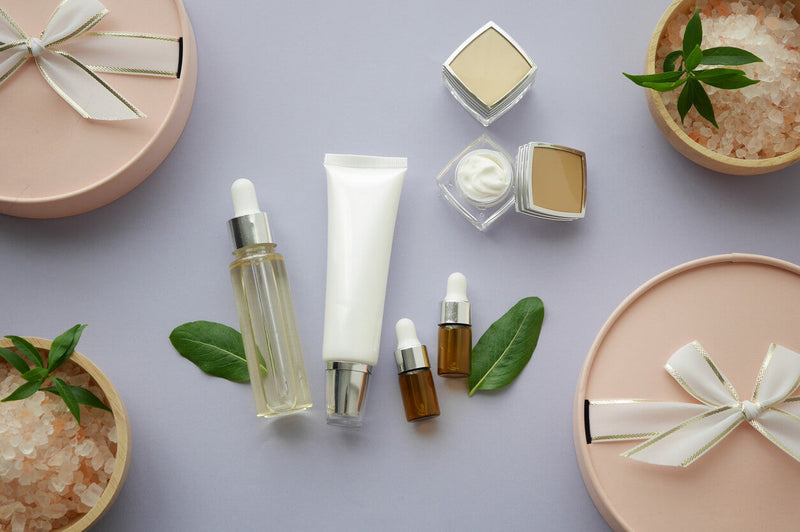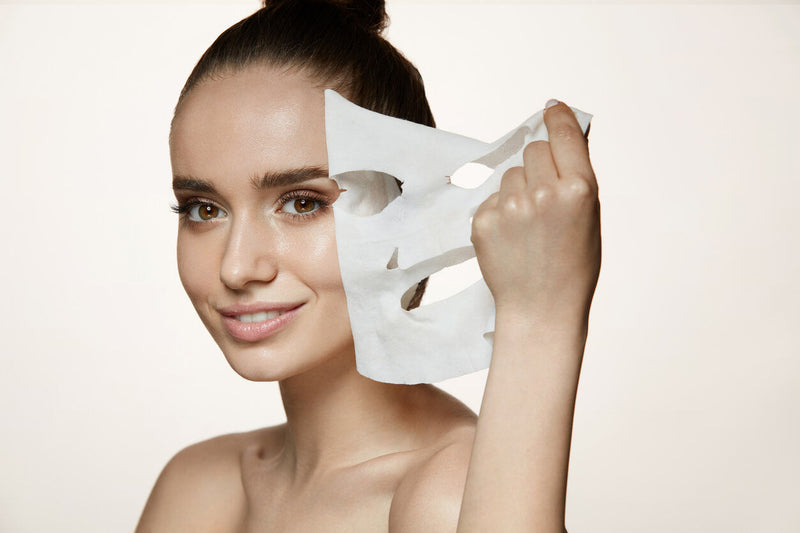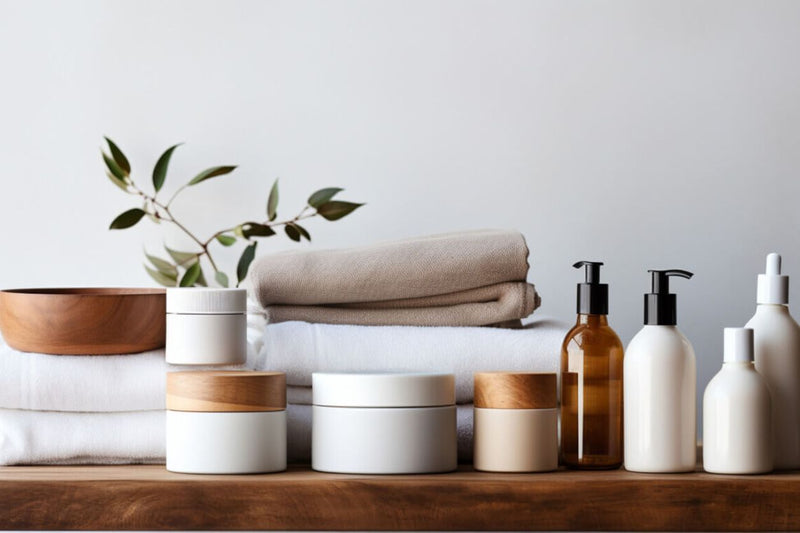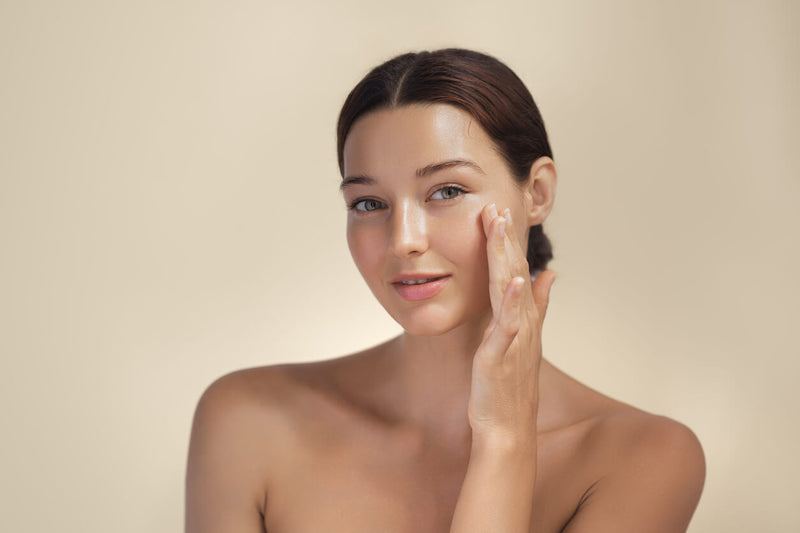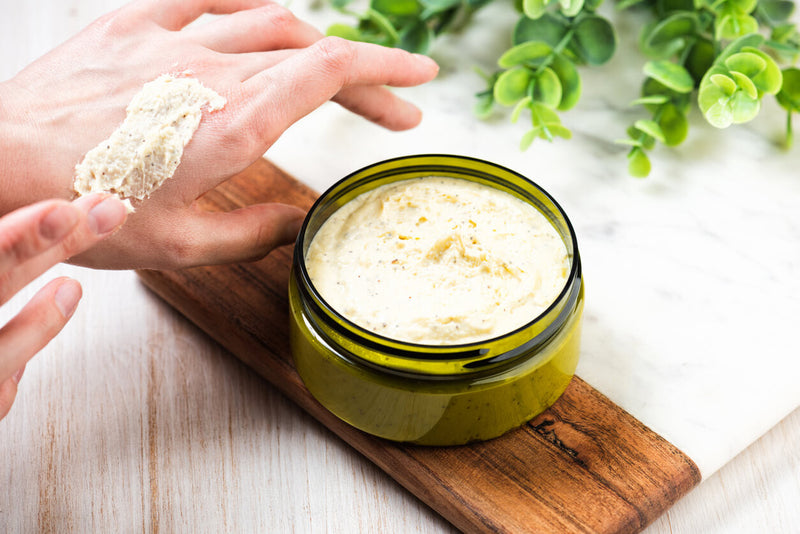

Face serums are known for their ability to infuse extra moisture while managing various specific skin concerns. Featuring a high concentration of active ingredients, they have increasingly become a popular skincare product used for treating various skin issues such as acne, fine lines, dullness, and discoloration.
If you’re thinking of adding a serum to your routine or want to learn more about it, continue reading. We answer the commonly asked questions about face serums and provide a brief rundown of the formulations we have from the Dr. Sylvia Skin Care line.
1. What is a face serum?
Serums are lightweight and fast-absorbing skincare formulations. Compared to typical face moisturizers, they contain a higher concentration of active ingredients (such as vitamin C, niacinamide, and hyaluronic acid) to target specific skin concerns. The ingredients are also made up of tiny molecules that can penetrate deep into the skin.
As serums are more concentrated and quickly absorbed into the skin, they tend to provide more visible results. There are, furthermore, different types of serums, including:
- Hydrating
- Anti-aging
- Brightening
- Exfoliating
- Acne-fighting
- Firming
- Reparative
2. What problems can serums help with?
This will depend on the active ingredients in the formula. Serums with vitamin C, for instance, are ideal for brightening the skin and fading pigmentation. Those with niacinamide, meanwhile, are ideal for regulating sebum production, boosting moisture, and tightening pores.
You may also be glad to know that there are serums that help increase collagen production and speed up skin repair, like peptide-infused ones. As different types of serums contain different active ingredients, make sure to choose a product based on the problem you want to address.
3. How does a serum differ from a moisturizer?
Face moisturizers hydrate the skin and seal in moisture and nutrients. They also have a thicker consistency and work to mainly protect the surface layer of the skin. Moisturizers, furthermore, have larger molecules than face serums, so they do not penetrate the deeper skin layers.
Serums, on the other hand, target specific concerns such as fine lines, pigmentation, dry skin, and more. They have smaller molecules and fewer sealing or moisture-locking ingredients. And compared to moisturizers, they also penetrate deeper to deliver potent doses of beneficial ingredients to the targeted cells.
4. What is the difference between a face oil and a serum?
Most face serums are water-based and have smaller molecules that can penetrate deeper and nourish the skin’s inner layer. They are lighter than face oils and are commonly applied before a face cream or moisturizer.
Face oils, meanwhile, are not formulated with water and have a thicker consistency. They also have larger molecules that only reach the skin’s outermost layer. Oils, moreover, absorb slowly and are applied after (or instead of) moisturizer.
5. Can a face serum replace a moisturizer?
No, because they have different purposes. Serums deeply penetrate with active ingredients to target specific concerns. Moisturizers, meanwhile, are for locking nutrients while increasing skin hydration. It is also important to keep in mind that not all serums are formulated to hydrate the skin, so it is important to use a moisturizer after.
6. How long should you leave serums on your face?
With serums, you need to give it time and a chance to penetrate your skin. They are not meant to be washed off right away and you need to wait several seconds or minutes between layers or finishing your regimen with moisturizer. This can help prevent skincare pilling or products collecting on the surface of the skin.
The time needed to wait totally depends on the product, so it is best to follow the manufacturer’s instructions. Vitamin C serums, for instance, need to be left for a minute or two, while retinol should be left for 10 to 20 minutes before applying the next products.
7. Can you apply more than one serum in a skincare regimen?
Yes, you can, but make sure to let each product soak in before applying the next one. You might also want to limit the number of serums to two to three at the same time to avoid irritation or other unwanted side effects. Make sure to do your research to avoid using active ingredients that cancel out each other or don’t work well together.
8. Can you mix two serums together?
You may be able to by following certain guidelines, but to be on the safe side and prevent decreasing the formulas’ efficacy, it is advisable not to. You should also know that some products can be extremely drying and affect the pH levels of your skin differently.
As previously mentioned, some ingredients (like vitamin C and retinol) can cancel each other out when applied at the same time. You can, however, layer face serums depending on your specific concerns. If you, for instance, are using vitamin C to brighten your skin and reduce signs of aging, you can layer it with a hyaluronic acid serum or apply them it different times of the day,
9. How should you apply a face serum?
Here are some general recommendations:
Read the instructions to know whether you should apply in the morning or at night (or both) and how much product to use.
- Prep your face by cleansing or removing any makeup.
- Most products recommend two to three pumps and massaging the formula into the skin.
- Serums are concentrated, so applying more is not better,
- Wait for a few minutes and apply a moisturizer to lock in moisture and enhance benefits.
Face serums at Dr. Sylvia Skin Care
Dr. Sylvia Skin Care has multiple serums that can nourish, protect, and fight signs of aging.
- Apple stem cell serum – a skin repair serum that helps stimulate the production of collagen and elastin. It activates skin cell regeneration, locks in moisture, and targets premature aging and fine lines.
- AHA Resurfacing Serum – gently exfoliates the skin to improve skin texture, fade dark spots, and reduce the visible signs of aging.
- 20% Vitamin C with Ferulic Acid – a potent anti-oxidizing formula that can reduce oxidative damage, reduce the appearance of lines and wrinkles, and even skin tone for a brighter complexion.
- Multi Peptide Youth Infusion – a skin rejuvenation serum that contains powerful peptides. It helps stimulate collagen production, firm and tighten the skin, as well as improve the appearance of dark spots and protect the skin from environmental stressors.












